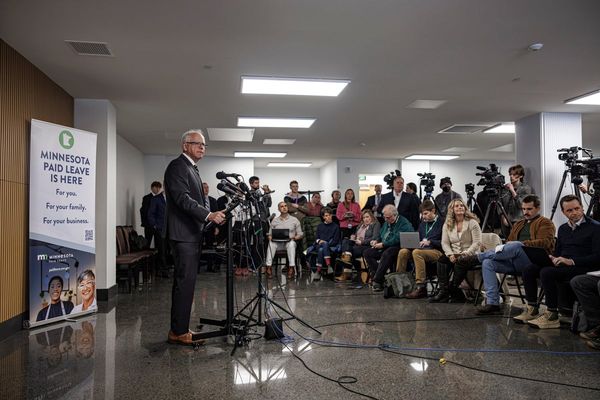
In the months before the disappearance of columnist Jamal Khashoggi, Saudi Arabia’s government racked up a startling record of human rights abuses.
It has led a coalition waging a brutal war in neighboring Yemen, which has killed thousands of civilians, including 40 children whose school bus was bombed in August. Saudi officials have jailed dissidents, businesspeople, clerics and journalists, as well as royal rivals to the country’s de facto ruler, Crown Prince Mohammed bin Salman.
None of the Saudi atrocities and trespasses generated sustained outrage, at least not in the West. Thanks to crafty public relations management, Mohammed until recently enjoyed an image as a progressive reformer and staunch American ally. On a recent goodwill tour of the United States, he was cordially received by the likes of Amazon founder and Washington Post owner Jeffrey P. Bezos, Dwayne “The Rock” Johnson, Oprah Winfrey and Rupert Murdoch.
The apparent murder of Khashoggi in Saudi Arabia’s consulate in Istanbul appears to have changed all that.
Why the reaction to Khashoggi, a man few people had heard of until his disappearance, when so many other acts of barbarity by the Saudis have been largely overlooked?
The answer may be a combination of the time and place of Khashoggi’s disappearance, and the gruesome circumstances of his apparent death, which may have made his story more “relatable” to American viewers and readers. The accumulation of details has created the kind of sustained news coverage that the faceless victims of war and violence rarely receive, experts on international affairs say.
The Khashoggi story has been prominent in the American news media almost since he walked into the consulate on Oct. 2. Governments around the world, including the United States’, have called on Saudi Arabia to account for what happened. In the days since, a Saudi investment conference involving American media companies and investors has all but collapsed in reaction. The constant news coverage has created perhaps the foremost foreign-policy crisis of President Trump’s administration.
Apart from the geopolitical implications of Khashoggi’s apparent killing, the volume of news coverage about him is a validation of a saying attributed to Soviet dictator Joseph Stalin: “A single death is a tragedy; a million deaths is a statistic.”
Though not widely known before this month, Khashoggi was well connected in Washington. A former Saudi insider himself, he lived in exile in Northern Virginia and was a familiar figure among Washington’s foreign-policy wonks, politicians and media figures. He had also worked since last year as a contributing columnist for The Post, an association that gave him an establishment perch and international cachet.
All that made him distinct and distinguishable from Saudi Arabia’s many victims, said Stephen McInerney, executive director of the Project on Middle East Democracy, a Washington-based policy organization.
“Brutal violence happens relatively frequently in Saudi Arabia, but the victims tend to be anonymous,” McInerney said. “Jamal was not anonymous. He was a writer and journalist for The Washington Post. It personalizes him. It humanizes him as a victim in a way [others] aren’t humanized in their own country.”
It’s also important that Khashoggi was apparently killed outside the kingdom, he said. The murder of a dissident inside Saudi Arabia would very likely have been covered up.
In this case, the events in question occurred in Turkey, a country with an adversarial relationship with Saudi Arabia and thus an incentive to expose what happened, he said.
In fact, the Turkish government has been the leading source of leaks about the incident, providing such key bits of information as the identities of some men in the alleged Saudi “hit squad” and closed-circuit footage of Khashoggi entering the consulate. Each new revelation — released at strategic points over the past two weeks — has propelled the story. (The irony is that Turkey ranks as the world’s foremost jailer of journalists, according to the Committee to Protect Journalists.)
What’s more, Turkish officials have been the source of media reports about the way Khashoggi was said to have been tortured, beheaded and dismembered inside the building. These accounts have inextricably linked Khashoggi’s name to a chilling phrase: “Bone saw.”
“What’s been reported is so brazen and so gruesome that it seems like something out of a horror movie,” said Sarah Margon, the Washington director of Human Rights Watch.
The allegations have turned the Khashoggi case into “one of the most craven and depraved killings of a journalist that I can recall,” said Joel Simon, the executive director of the Committee to Protect Journalists. “The brutality inflicted is the kind of thing you see from a terrorist group, not a state actor.”
Simon said a significant part of the public reception of the Khashoggi story was his association with The Post. While most people can’t name an individual who died in the terrorist attacks of Sept. 11, 2001, Simon said, many remember the murder of reporter Daniel Pearl a few months afterward because of his affiliation with the Wall Street Journal. Pearl was kidnapped and killed by the terrorist Khalid Sheikh Mohammed while reporting in Pakistan in 2002.
But even more mundane details about Khashoggi have served to make his story distinctive and memorable, said Margon of Human Rights Watch. She notes, for example, that he went to the Saudi consulate to get documents he needed to marry his fiancee.
“There’s so much conflict globally and so much brutality that it’s easy to say, ‘War is war. Terrible things happen,’ ” Margon said. “When an individual is killed this way, it sticks with you. You can understand it.”







